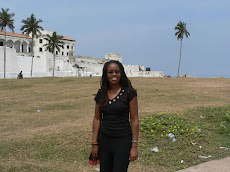I don’t think there’s been a year in my recent past that I’ve known or remembered about daylight savings time before the actual date of the change. And, for the first 24 hours, I’m still unsure about the actual time. The same thing just happened in Namibia. I think we were supposed to turn our clocks back an hour this morning. I have the most recent newspaper (Friday), but it says nothing about the time changes.
According to my time zone internet sources, the 1st Sunday in April until the 1st Sunday in September marks “Winter Time” in Namibia. To further confuse things, Namibia, unlike its neighbors of Botswana, Zimbabwe, and South Africa, observes Daylight Savings Time (DST), whatever Daylight Savings Time really means. DST here ended at midnight last night.
During “Winter Time,” Namibia is on Greenwich Mean Time (GMT) or Coordinated Universal Time (UTC, I know the acronym does not follow the rules) +1. It is one hour behind its eastern neighbors during these months. During “Summer Time” (October to March), Namibia is on Central African Time (CAT), which is GMT+2.
Here’s a description from the Center for Global Education at Augsburg College (Minnesota); they host a study abroad program here:
Namibia is generally seven (7) hours ahead of Eastern Standard Time (EST), eight (8) hours ahead of Central Standard Time (CST), nine (9) hours ahead of Mountain Standard Time (MST), and ten (10) hours ahead of Pacific Standard Time (PST). Namibia and South Africa are in the same time zone.
However, Namibia changes to daylight savings time and South Africa does not. Also, since Namibia is in the southern hemisphere, when the time does change, it goes in the opposite direction from the northern hemisphere, and the dates of the time change are different from the U.S. As an example, depending on whether Namibia and the U.S. are currently on standard or daylight savings time, Namibia can be 6, 7 or 8 hours later than the U.S. Central Time Zone.
Huh?!?!?
I’m sure it’s clear; I’m just a little slow on the time zone-uptake. It could also be because I've lived in each of the four time zones in the U.S. and have just given up on trying to tell the time.
I just put a clock on the left column that should let you know the current time in Namibia and in Washington, DC. You are on your own to figure out the time differences from other places. Note that I put Namibia time on a 24-hour clock, because that is how time is told here.
DISCLAIMER
The ideas and thoughts expressed within this blog are not the views or opinions of WorldTeach nor the Namibia Ministry of Education, but rather my personal views.

Sunday, April 5, 2009
Subscribe to:
Post Comments (Atom)





.jpg)
Best to let someone else figure out what time it is! That is really confusing. I'm assuming Namibia only has ONE time zone for the entire country. So how can it be 6,7,or 8 hours difference at different points during the year???
ReplyDeleteThat all makes perfect sense to me. I really don't understand the confusion. But you forgot to add one more thing to this mess. The united states has changed its dates for changing the clocks. We now turn them forward (it would be back for you south of the equator) in early March and back (forward for you) in late October.
ReplyDeleteWhat could be so confusing about that? Now what were we talking about
Tamara,
ReplyDeleteI was trying to find current contact info for your mom and I found this wonderful blog of yours -- how thrilling that you are in Namibia! Sending you love... and tell your mom to email me at ejld@uchicago.edu, or send me her current email!!
Elizabeth Davenport
What's the importance of time change to Namibia?
ReplyDeleteI need some education here!
ReplyDeleteApparently the reason why we change the time is because it is too dark in the morning during winter. I don't know the 'scientific reason' behind the whole thing. I guess it is just convenient. Its very dangerous here when its dark.
Delete